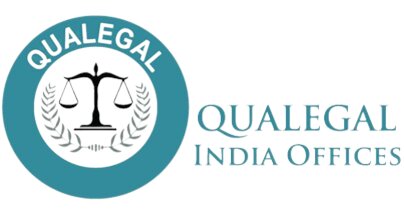Best Education Law Lawyers in New Delhi
Share your needs with us, get contacted by law firms.
Free. Takes 2 min.
List of the best lawyers in New Delhi, India
About Education Law in New Delhi, India
Education law in New Delhi, India, encompasses a broad array of regulations and legal principles designed to ensure access to quality education and to address the rights and responsibilities of students, teachers, and educational institutions. This area of law deals with issues such as admission procedures, the recognition of institutions, the rights of students and parents, teacher qualifications, the management of public and private institutions, and the implementation of educational policies set by the government.
Why You May Need a Lawyer
Individuals and institutions may require legal assistance in education law for various reasons. Here are some common situations:
- Disputes over student admission policies or processes.
- Cases involving bullying, discrimination, or harassment in educational settings.
- Legal issues surrounding the recognition and compliance of educational institutions with regulatory standards.
- Concerns regarding the rights of differently-abled students under educational policies.
- Litigations involving school or college fee structures and refund policies.
- Teacher employment disputes, including wrongful termination or contract issues.
- Matters concerning educational assessments, exams, and grading systems.
Local Laws Overview
Key aspects of education law relevant to New Delhi include:
- The Right of Children to Free and Compulsory Education Act, 2009: Mandates free and compulsory education for children aged 6 to 14 years.
- Delhi School Education Act, 1973: Governs the establishment, regulation, and management of schools in Delhi, focusing on rights related to students, teachers, and administrators.
- The University Grants Commission Act, 1956: Framework for the coordination, determination, and maintenance of university education standards in India.
- The National Education Policy: Provides direction for educational reforms and development at various educational levels within Delhi.
Frequently Asked Questions
What is the importance of the Right to Education (RTE) in New Delhi?
The RTE Act entitles children between the ages of 6 and 14 to free and compulsory education, ensuring their access to a minimum quality of education regardless of socio-economic status.
How can parents challenge unfair admission practices in schools?
Parents can file complaints with the Directorate of Education or approach the civil court to challenge admissions that violate established guidelines and regulations.
Are private schools allowed to set their own fee structures?
While private schools can determine fees, they must adhere to norms and guidelines set by the Delhi Government to prevent exploitation and ensure transparency.
What recourse do students have in cases of discrimination at school?
Students can file complaints with the school management or the Directorate of Education and, if needed, seek legal recourse through the courts for resolution of discrimination issues.
How are teacher employment disputes handled?
Teacher employment disputes can be managed via internal grievance mechanisms, labor courts, or through arbitration and mediation, depending on the nature of the dispute.
Can educational institutions operate without accreditation in Delhi?
No, institutions need proper accreditation and recognition from respective regulatory bodies such as the CBSE or the Delhi Government to operate legally.
What is the process for lodging a bullying complaint at school?
Complaints about bullying should be filed with the school's grievance redressal committee or directly with the school’s principal, and if unresolved, may be escalated to local educational authorities.
Are students allowed legal representation during disciplinary proceedings?
While students can seek legal counsel for advice, formal legal representation during school disciplinary proceedings is generally not permitted unless the proceedings turn into legal challenges.
What is the role of the Directorate of Education in New Delhi?
The Directorate of Education oversees education in New Delhi, ensuring policy implementation, regulating school operations, and addressing grievances related to education law.
How can institutions comply with the new National Education Policy?
Institutions should keep updated with guidelines issued by the Central and State governments to align curricula, teaching methodologies, and educational goals with the National Education Policy objectives.
Additional Resources
- Ministry of Human Resource Development: Primary governmental body for education policies and regulations in India.
- Directorate of Education, Government of NCT of Delhi: Local government office managing educational concerns and implementation in Delhi.
- National Commission for Protection of Child Rights: Works on protecting child rights with a focus on education.
- Legal Aid Centers and NGOs: Various organizations offer legal support and counseling for education-related issues.
Next Steps
If you require legal assistance in education law, consider taking the following steps:
- Research and identify qualified education law lawyers through bar associations or legal directories.
- Consult with a lawyer to discuss your specific issues and gather relevant documentation that supports your case.
- Explore out-of-court resolutions through mediation or arbitration to potentially save time and costs.
- File formal complaints with appropriate educational bodies if informal resolutions do not yield results.
- Prepare for legal proceedings by understanding your rights and obligations under the relevant education laws.
Lawzana helps you find the best lawyers and law firms in New Delhi through a curated and pre-screened list of qualified legal professionals. Our platform offers rankings and detailed profiles of attorneys and law firms, allowing you to compare based on practice areas, including Education Law, experience, and client feedback.
Each profile includes a description of the firm's areas of practice, client reviews, team members and partners, year of establishment, spoken languages, office locations, contact information, social media presence, and any published articles or resources. Most firms on our platform speak English and are experienced in both local and international legal matters.
Get a quote from top-rated law firms in New Delhi, India — quickly, securely, and without unnecessary hassle.
Disclaimer:
The information provided on this page is for general informational purposes only and does not constitute legal advice. While we strive to ensure the accuracy and relevance of the content, legal information may change over time, and interpretations of the law can vary. You should always consult with a qualified legal professional for advice specific to your situation.
We disclaim all liability for actions taken or not taken based on the content of this page. If you believe any information is incorrect or outdated, please contact us, and we will review and update it where appropriate.









